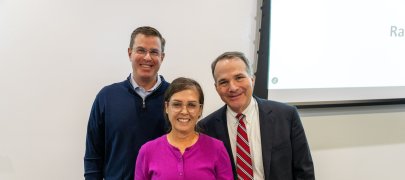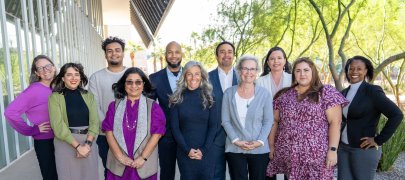Becker's Spine Review
While private equity funding can support the growth of medical practices and enhance efficiency, some surgeons see potential drawbacks, including negative influence on research and conflict between partners. "Obviously, private equity, in general, is not conducive with the running of a publicly funded institution such as our department, but having private practice groups as partners in a 'balanced' faculty in a university department has become a mainstay of many universities in 2024," said Michael McKee, MD, professor and chair of the Department of Orthopedic Surgery in the University of Arizona College of Medicine – Phoenix.
Topics
About the College
Founded in 2007, the University of Arizona College of Medicine – Phoenix inspires and trains exemplary physicians, scientists and leaders to optimize health and health care in Arizona and beyond. By cultivating collaborative research locally and globally, the college accelerates discovery in a number of critical areas — including cancer, stroke, traumatic brain injury and cardiovascular disease. Championed as a student-centric campus, the college has graduated more than 900 physicians, all of whom received exceptional training from nine clinical partners and more than 2,700 diverse faculty members. As the anchor to the Phoenix Bioscience Core, which is projected to have an economic impact of $3.1 billion by 2025, the college prides itself on engaging with the community, fostering education, inclusion, access and advocacy.


